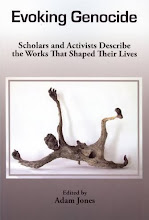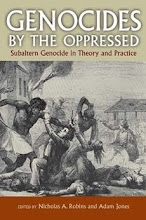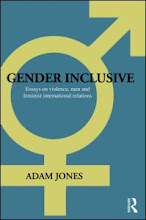Judge Who Arrested Pinochet Now Finds Himself in the Dock
By Alasdair Fotheringham
The Independent, January 18, 2012
"He tried to extradite General Pinochet, ordered the arrest of Osama bin Laden, put notorious members of the Argentinian junta, such as Adolfo Scilingo, behind bars and investigated the mass executions of nearly 150,000 Spanish Republicans under General Franco. But yesterday, in the first of three cases, Spain's crusading high court judge, Baltasar Garzón, went on trial himself. Mr. Garzón, who is viewed by many as Spain's most courageous legal watchdog and the scourge of bent politicians and drug warlords the world over, faces up to a 17-year suspension from his job in the initial case alone. The hearing, into whether the judge abused his powers, will investigate claims he ordered illegal police recordings of conversations between suspects in a massive corruption case in Valencia, involving high-profile figures from Prime Minister Mariano Rajoy's Partido Popular (PP) Party. Yesterday morning, dozens of Mr Garzón's supporters, including Communist Party deputy Gaspar Llamazares, stood outside a packed courtroom in central Madrid and cheered the judge as he picked his way through the throngs of journalists. 'Fine, just fine,' he answered, when asked how he was feeling. Mr, Llamazares told reporters the 56-year-old judge was the victim of a political witch-hunt for his human rights work, which in Spain has concentrated on the mass murders of Republicans during the Civil War and the early part of Francisco Franco's dictatorship. Mr. Garzón was suspended from his duties in May 2010, and even if he is cleared in this case -- an outcome widely believed to be unlikely -- next week a second, more controversial, case sees him back in court for alleged professional misconduct during his Civil War investigations. And a third trial, as yet unscheduled, will see him charged with accepting illicit payments from Spain's biggest bank, Santander.
Now working as an adviser at the International Criminal Court in The Hague, Mr Garzón entered the Madrid courtroom yesterday in apparent good spirits and wearing his judge's robes what could be the last time. He came to prominence on the back of Spain's principle of universal justice -- which allows suspects in international cases to be tried in Spain, even if there is no immediate connection to the country -- but was the first judge to exploit it fully when he ordered the arrest of Chile's former dictator, General Augusto Pinochet, in the UK in 1998. Pinochet was detained for more than a year, as Mr. Garzón's request for extradition was considered, but was finally freed on health grounds. Even so, the case is regarded as a breakthrough by human rights organisations, inspiring victims, notably in Argentina and Chile, to take their cases before the courts. However, Mr. Garzón did not just bring his steely legal gaze to bear on former tyrants. Eta has reputedly had Mr Garzón in its sights for his supervision of successful police campaigns against the terrorist group in the 1990s, and he even ordered the arrest of Bin Laden in a crackdown on al-Qa'ida in 2003. The alleged tapping in the corruption case – currently being heard in a court in Valencia – may have earned Mr Garzón few friends in the ruling PP party, but his supporters believe his investigations into Franco's human rights abuses are behind the cases against him. Nearly 150,000 of Franco's murdered opponents remain buried in mass graves on Spain's rural roadsides and in its cemeteries. Amnesty laws passed in 1977 made seeking out those responsible during the 40-year-dictatorship almost impossible -- something the UN Commission for Human Rights has repeatedly warned was not permitted. Only Mr Garzón was willing to try to apply international law in his country. [...]"
Thursday, January 19, 2012
Subscribe to:
Post Comments (Atom)















No comments:
Post a Comment
Please be constructive in your comments. - AJ